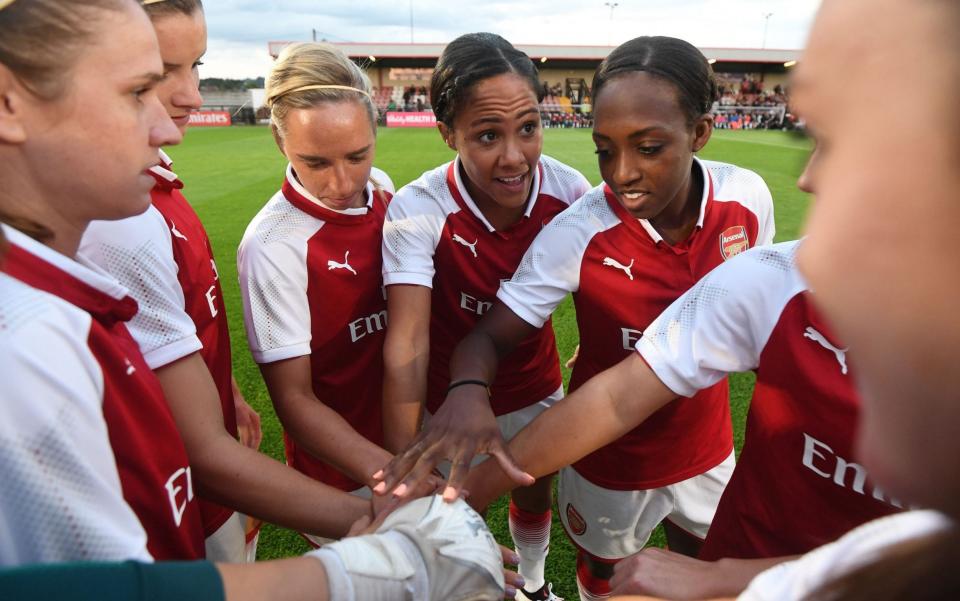Yes, Alex Scott does deserve to be the new face of BBC's Football Focus

For the inevitable sceptics, perhaps the first thing to say is, yes, Alex Scott — who has been named as the first full-time female host of Football Focus — most certainly did play at the very highest level.
She won 140 England caps. She was part of 21 trophy-winning teams at Arsenal. And she played in four European Championships, three World Cups and an Olympic Games.
That is 140 England caps, 21 trophies, four European Championships, three World Cups and an Olympic Games more than the three men - Dan Walker, Manish Bhasin and Ray Stubbs - who have presented BBC’s Football Focus so far this century.
But, of course, playing experience should always only be a potentially-useful extra for any presenting role. Football knowledge. An engaging personality. An ability to extract insight and information from your guests. And a drive to sometimes go beyond football’s shiny veneer in asking searching questions.
These all matter most and, since her retirement three years ago, Scott has consistently demonstrated her credentials under a spotlight that has been never less than dazzling.
Her contributions at Russia 2018, where she became the first female pundit to cover a men’s World Cup, can even be argued to have changed her profession.
Well aware, no doubt, that any mistake would be seized upon by the unforgiving world of social media, she was meticulous in her preparation.
Scott’s first match was France v Australia and, as she launched into a detailed half-time tactical appreciation of the French full-backs - Benjamin Pavard and Lucas Hernandez - something unexpected happened. Social media was awash with fans relishing the insight and wondering why some of her male counterparts got away with such transparently minimal research.
Those who know Scott were hardly surprised.
From playing football as a tiny child with older boys in an enclosed ‘cage’ facility adjacent to the council estate where she was brought up by her mother in East London, Scott always ensured her talent and determination overcame gender stereotypes.
Her first big break came at the age of eight, when she replaced a boy who dropped out of her brother’s team before a tournament, and was noticed by Arsenal.
For most of the next 26 years, she was integral to an Arsenal team that changed women’s football en route to become the UK’s only European Cup-winning club.

It was still noticeable, though, that Scott's retirement barely registered on Arsenal’s final home game of the 2017/18 season when she was a peripheral part of Arsene Wenger’s big send-off.
No-one was just going to gift her opportunities in the media.
Yet rather like Gary Lineker, she had the foresight to begin actively preparing for her next career while she was still a player.
Staff at Sky Sports can still remember how Scott began with an unpaid work placement on the digital team. “She was always very diligent, putting in the hours, very conscientious,” said one colleague. This progressed into some presenting for Soccer AM on YouTube where videos of her early work date back to 2015.
Her fame naturally moved on to a whole different level following the 2018 World Cup but, as is so often the case, she had actually spent years honing her skills before becoming an overnight sensation. Further barriers have since been broken down in her work on live Premier League football and as a regular Football Focus guest.
All this during an age when being trolled by racist and sexist abuse - which has even included rape and death threats - has somehow become a normalised part of having a high profile and being on social media. Scott has been open about how she reached a “dark place” and sometimes even turned to alcohol before seeking therapy to help her deal with that world.
And so, just like everything in her life, Football Focus has not simply followed a smooth path that has been fortuitously laid in front of her. There have been jagged bumps. (And there will be more as she transitions into a what is a very different role.)
But this opportunity has been earned. It has arrived on merit. That is what should be highlighted today. And, if being the first woman to present Football Focus can also inspire more girls into sport and help open up football’s often insular world, then so much the better.
A version of this article first appeared in April 2021

 Yahoo Finance
Yahoo Finance 